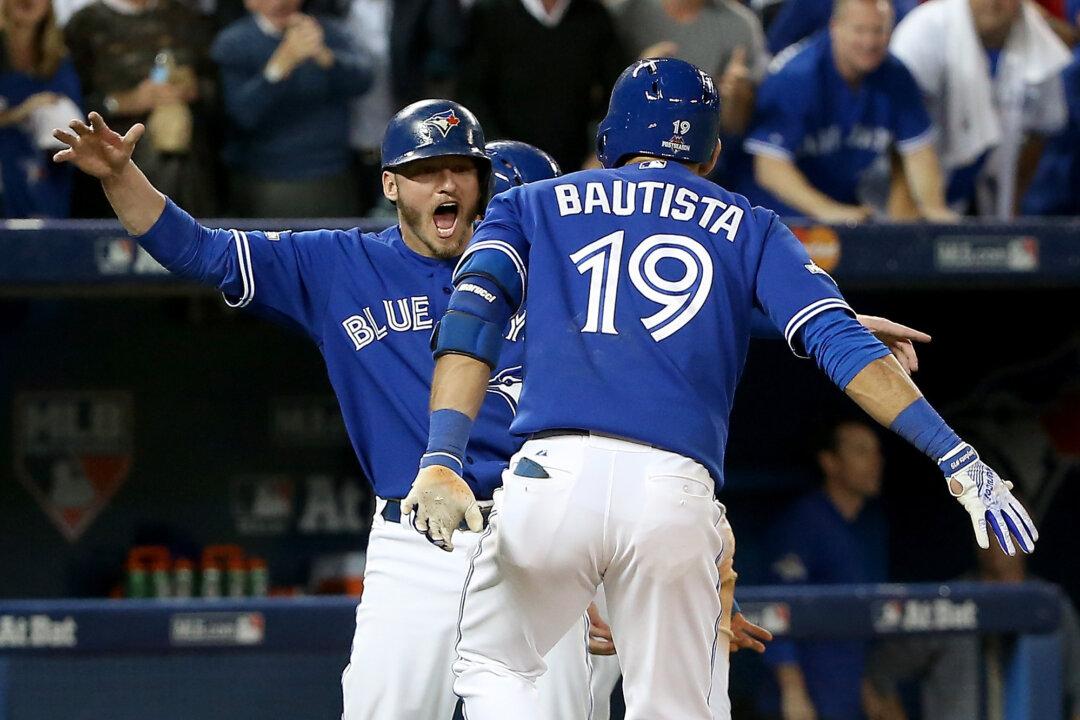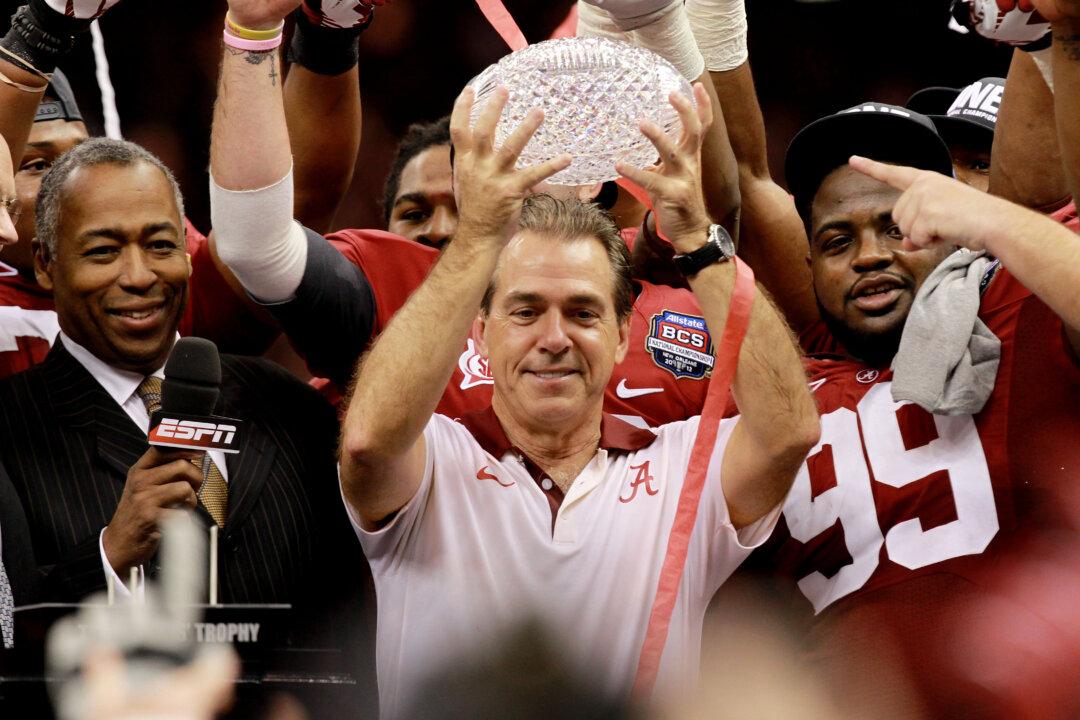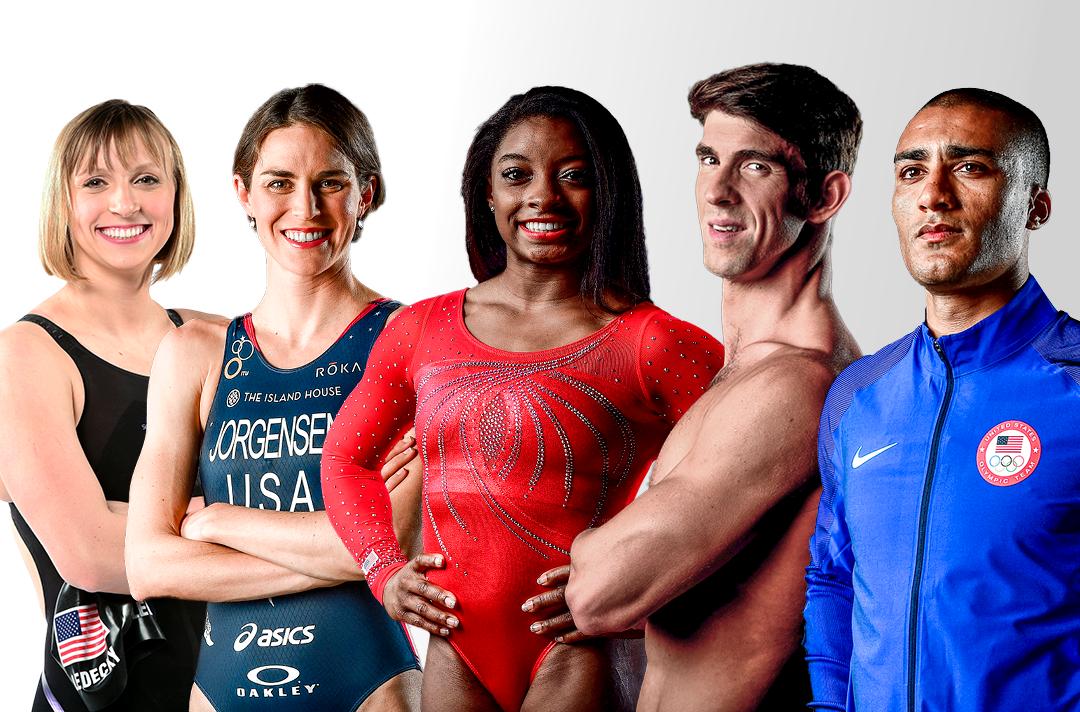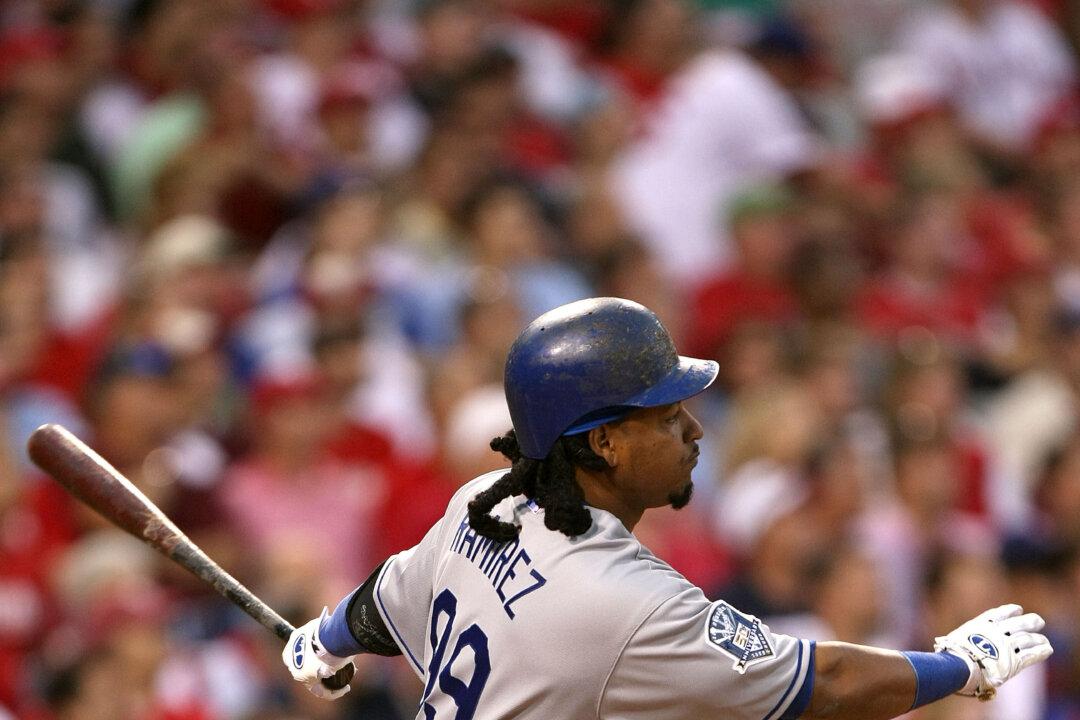The Blue Jays and Royals both made Houdini-like escapes to advance to the ALCS. Toronto overcame a 2–0 series deficit and a bizarre seventh-inning in Game 5 that saw them fall behind on a incomprehensible ‘error’ by catcher Russell Martin, while Kansas City miraculously rallied from four runs down in the eighth inning of Game 4 to win and force a decisive Game 5—that they also emerged victorious from.
This is the matchup that most baseball pundits wanted to see after their last series, two months ago, that was full of drama, big hits, and bench-clearing moments. Here’s how these two teams stack up.
Starting Pitching
Here’s the likely pitching matchups: David Price vs. Edinson Volquez in Games 1 and 5, Marco Estrada vs. Yordano Ventura in Games 2 and 6, Marcus Stroman vs. Johnny Cueto in Games 3 and 7, and R.A. Dickey vs. Kris Medlen in Game 4.
Of course you can’t read it like the pitchers are opposing each other—they face the opposing offenses and while Kansas City has a surprisingly deep lineup this year, Toronto’s is off the charts, especially at the homer-happy Rogers Centre.
Looking at these games individually, the slight edge goes to the Blue Jays with Price on the mound in Game 1 (at KC) and then a big edge to the former Cy Young winner in Game 5 in Toronto. If the real Cueto is here to stay, he gives the Royals the edge in Game 7 (at KC) but the Game 3 matchup in Toronto is a toss-up.
After that, it’s hard to like the Royals chances with the talented, but shaky Ventura (7.71 ERA this postseason) in either start over Estrada (1.42 ERA). Meanwhile, Medlen versus Dickey would normally be a tossup, but not in Toronto where the Blue Jays lineup turns into murderer’s row.
The key looks like how Ventura does at home against the Blue Jays offense. Spacious Kaufman Stadium is the anti-Rogers Centre, but Ventura has been inconsistent for quite some time. Advantage: Toronto.
Bullpens
Kansas City lost one of the best closers in the game when Greg Holland finally decided to get an MRI on his ailing arm last month. One Tommy John surgery later, Holland is out for the year—and probably 2016 as well—but the Roayls still have the nearly-unhittable Wade Davis around to replace him. Davis had a 0.94 ERA and 17 saves this season and saved two of the ALDS games—including a two-inning relief job in the wild one that was Game 4. The Royals still have the hard-throwing Kelvin Herrera to go along with Ryan Madson, but it’s not the same trio that dominated last year’s playoffs.
Toronto counters with a kid who isn’t even old enough to drink the champagne they used to celebrate their ALDS win over Texas—Roberto Osuna. The 20-year-old Osuna has been great, not even allowing a hit in the 5 2/3 innings of work this postseason. Osuna and the rest of the pen have been lights-out in these playoffs thus far, putting up a 1.13 ERA in 16 innings. One big minus for Toronto is that lefty Brett Cecil is out with an injury and thus won’t be able to come in and neutralize Kansas City’s trio of lefties in Eric Hosmer, Alex Gordon, and Mike Moustakas. Slight advantage: Kansas City.





